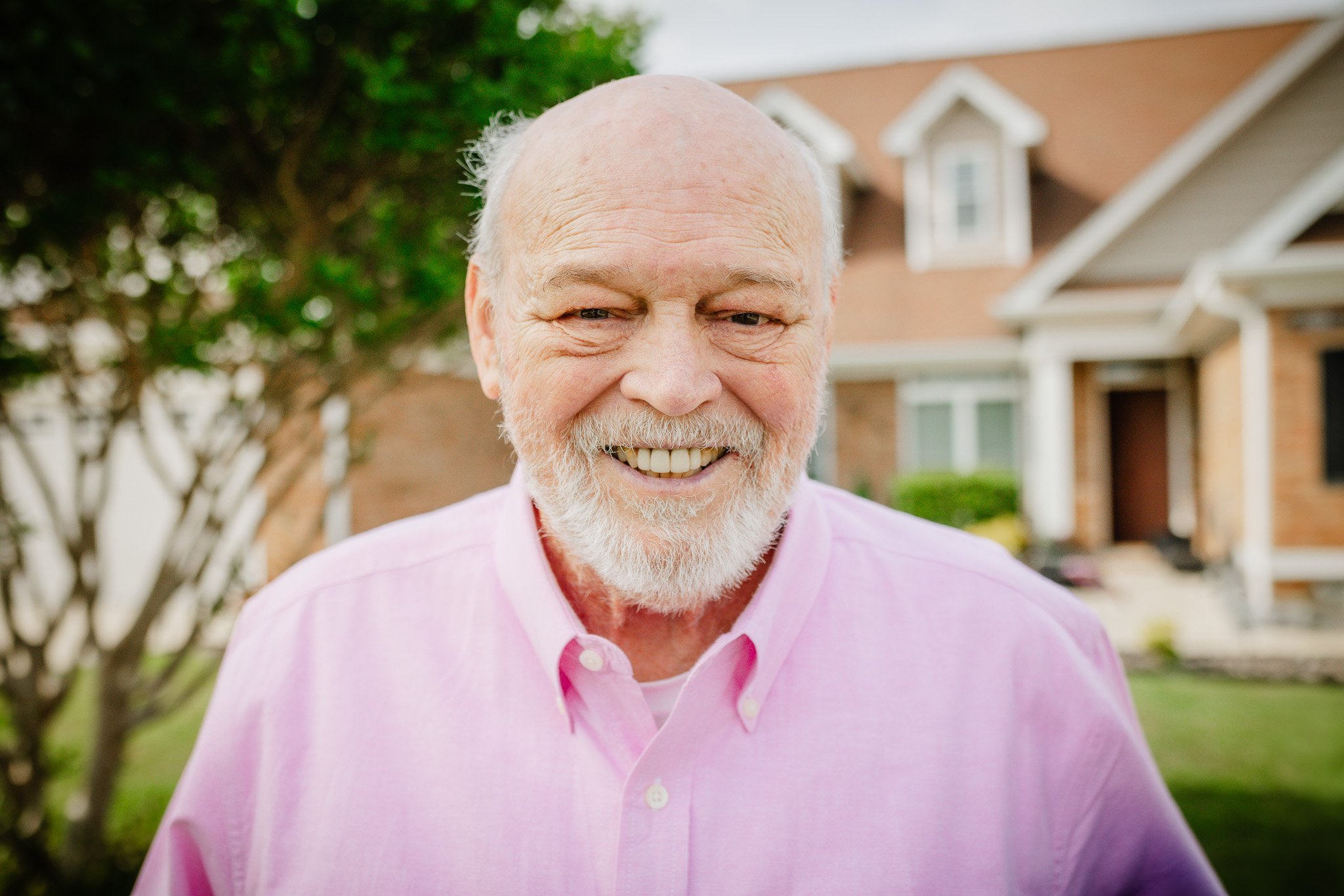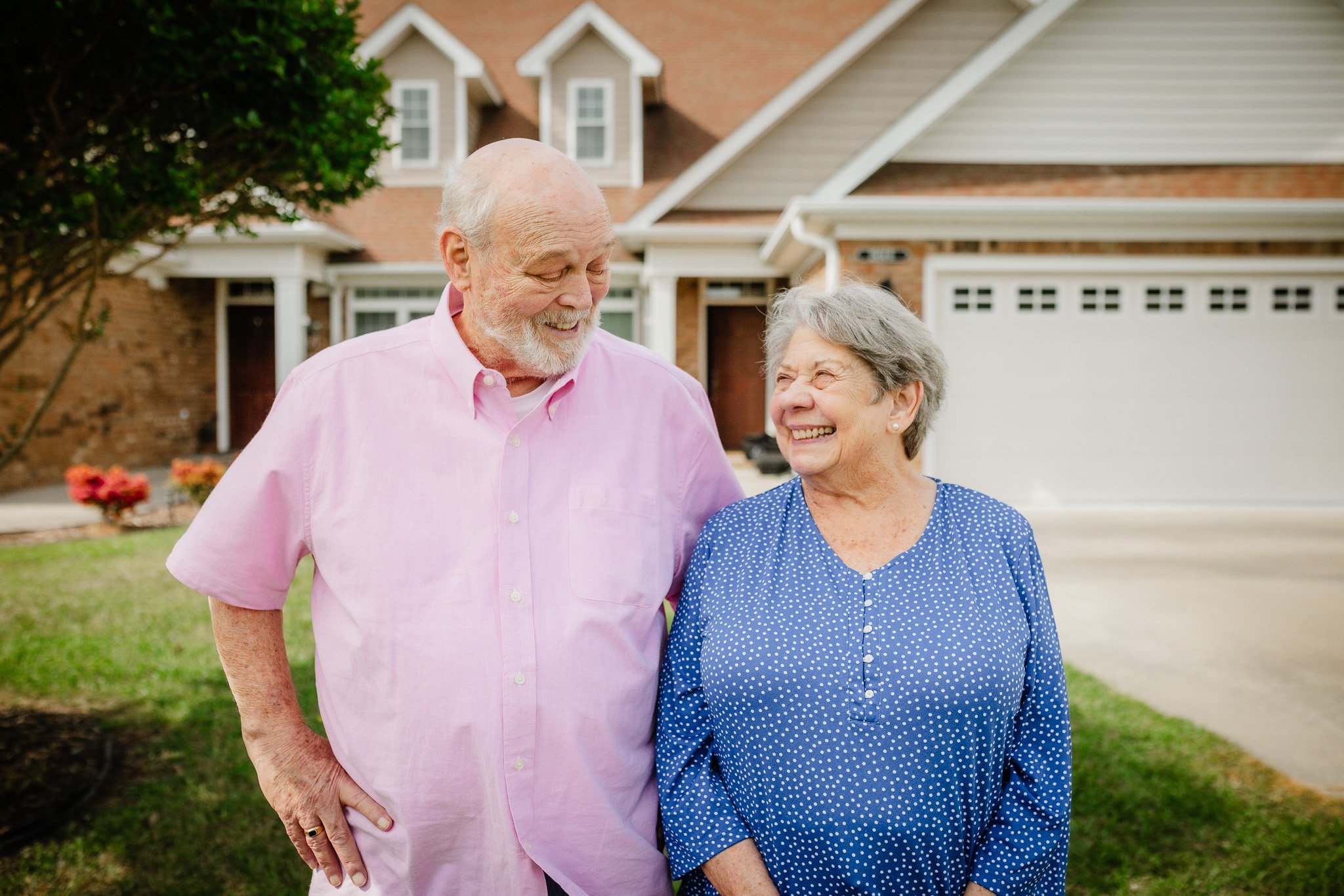“I Wasn’t Ready to Give Up”: Charlie’s Story
With the help of proactive, patient-centered care and expert coordination from his care team at Interwell Health, Charlie Cloninger received a preemptive kidney transplant and kept right on dancing, DJing, and daring to live life to the fullest.
tags

When Charlie Cloninger learned about his kidney disease, it seemed like an invisible illness—something theoretical that wouldn’t really disrupt his life. “I didn’t feel the problem,” Charlie says. But his family’s medical history weighed on him heavily. His grandmother, mother, and many other relatives had lived with diabetes and his mother died from kidney failure.
Charlie was diagnosed as prediabetic after a heart attack. But it wasn’t until his primary care physician recommended a nephrologist that Charlie’s kidney health moved into focus.
At Eastern Nephrology Associates in North Carolina, Charlie began working with Dr. Nauman Shahid, who carefully walked him through the stages of kidney function and the steps they would take to preserve his health. “Dr. Shahid explained everything to me,” Charlie reflects. “He told me, ‘We do have time. Our goal is to make sure you don’t end up on dialysis.’”
It was this patient-centered care philosophy that would make all the difference.
Enter Kathy Galloway and Interwell Health
Charlie’s care team included not only Dr. Shahid but also support from Kathy Galloway, a renal care coordinator (RCC) from Interwell Health embedded at Eastern Nephrology. As part of Interwell’s value-based kidney care model, RCCs like Kathy simplify what can often be an overwhelming path for patients with chronic kidney disease (CKD) by coordinating care beyond clinical visits and connecting them to services such as dietitians, behavioral health resources, and transplant education.
“Kathy worked with me constantly,” Charlie recalls. “She set up everything and followed through on what Dr. Shahid was doing. She even helped arrange a visit to a dialysis clinic to learn more about treatment options; although by then, I hoped to avoid dialysis altogether.”
Facing the possibility of dialysis can be emotionally daunting, especially for those with personal or family experience. Charlie’s mother had once refused to undergo dialysis—a decision he found troubling and that initially shaped his apprehensions. However, Kathy and Dr. Shahid provided the education and guidance needed to help him make informed decisions for his health and future. Knowing that dialysis was there as a backup but not an inevitability helped ease some of his worries.
Transforming health with education and lifestyle changes
Charlie’s path to health started with simple but significant changes. A dietitian referral—arranged by Kathy through Interwell’s network—proved to be a pivotal moment.
“I used to brag that I never drank water, but I learned that wasn’t something to brag about,” says Charlie. He went from drinking multiple sodas a day to nearly eliminating them altogether. “Now, I drink almost entirely water. That was a big change, and it made a huge difference.”
Switching to a kidney-friendly diet also meant cutting back on fried and salty Southern staples. With his wife’s support (“she absorbed everything the dietitian said”), Charlie began focusing on healthier meals at home. Together, they made adjustments that helped him not only preserve kidney function but also feel better overall.

Exercise became another key element of Charlie’s routine. He and his wife were active members of a shag dancing club—a regional dance style popular in the South—and this kept him moving several times a week. “Shag dancing kept me active, and I think it played a huge role in keeping me healthy,” he says. Even well into his seventies, Charlie continued staying active, which contributed to helping him manage his condition.
Confronting depression and the emotional aspects of kidney disease
Living with CKD brought challenges that weren’t just physical. Like many patients navigating chronic illnesses, Charlie found himself battling depression. After a routine mental health screening raised concerns, Kathy and the care team acted quickly to connect Charlie to behavioral health resources to help address the emotional toll of his diagnosis. This integration of holistic support—treating both the body and the mind—helped him continue his treatment plan with confidence.
When he first began his kidney health journey, Charlie often struggled to articulate how he was feeling. But he soon realized that the more he shared with his care team, the more they were able to help him. “When I finally spoke up and told them, things started to change,” Charlie says. “Every time I talked to the team, something good happened for me.”
The life-changing call
After three years on the transplant waitlist, Charlie received the phone call that would change his life.
“At 7 a.m., the phone rang. They asked me if I could be at the hospital in 30 minutes,” he remembers. “I said I’d be there in 15.”
Charlie underwent a successful transplant surgery that same day. Remarkably, his recovery was painless. “I had no pain at all, not even from the incision,” he said. “It was incredible.”
Reflecting on that life-changing call, Charlie is grateful not only for the medical professionals who performed the procedure but for the entire team that worked behind the scenes to prepare him for this moment. From Dr. Shahid’s early intervention to Kathy’s resource coordination, the collaboration across his care team made his preemptive transplant possible.
The promise of better outcomes for more patients
Charlie’s story is a living testament to the effectiveness of a holistic, patient-centric model for kidney care. For Charlie, this meant avoiding dialysis and continuing to live actively. For providers and payers, it’s further proof that a value-based kidney care model delivers improved outcomes.

Focusing on slowing disease progression and keeping patients off dialysis not only improves clinical outcomes, it also brings down the costs of managing CKD. According to the most recent annual data report from the USRDS, the average cost of care for in-center dialysis is $99,369 annually.1 Managing care for individuals with functioning kidney transplants is less than half that cost ($45,128).
A holistic approach to managing CKD
Interwell’s proactive, comprehensive approach to kidney care is focused on empowering patients to live life to its full potential. By staying ahead of patients’ needs, whether through early referrals, ongoing education, or addressing emotional health, Interwell helps individuals like Charlie achieve goals that once felt out of reach.
“I wasn’t ready to give up shag dancing, DJing, or living life the way I wanted to,” Charlie says. “Thanks to Interwell, I didn’t have to.”
To learn more about how Interwell’s value-based care model can help your members, visit interwellhealth.com/who-we-serve/payers.
_____________________________________________________________________________________________
1.USRDS: Healthcare Expenditures for Persons with ESRD. https://usrds-adr.niddk.nih.gov/2024/end-stage-renal-disease/9-healthcare-expenditures-for-persons-with-esrd